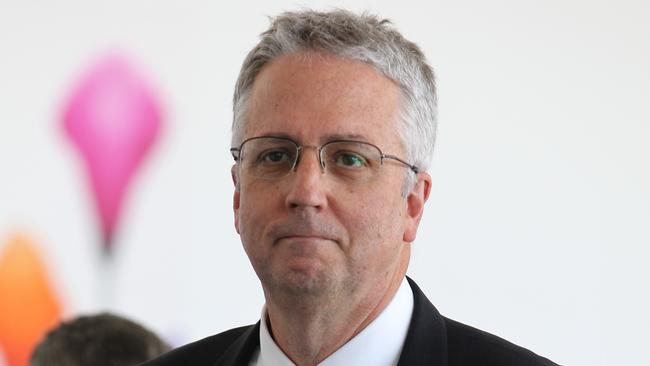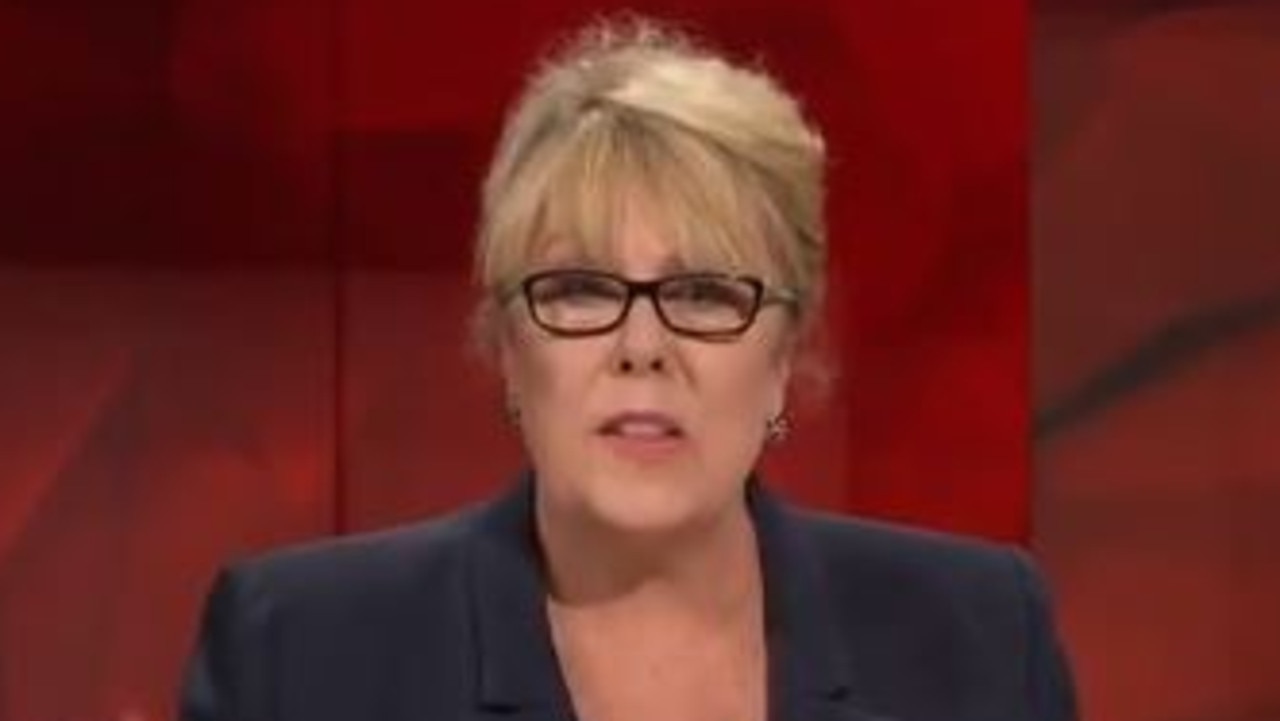How the ABC’s Mark Scott sealed digital prize
THE ABC has been lobbying hard to make a charter adjustment for years, worried there could be a push to wind back its digital operations.

ONE small item in a big press release: the line seemed innocuous enough.
“The government will modernise the charters of the ABC and SBS to reflect their online ... activities,” Stephen Conroy announced on March 12 last year, as the then communications minister revealed the Gillard government’s response to the Convergence Review and the Finkelstein inquiry into the future of media.
In turn, ABC managing director Mark Scott issued a statement indicating the ABC supported the decision to include reference to digital and online services in the broadcaster’s charter.
The exchange of media releases created the impression the shift was being led by Conroy, and supported by ABC management. In fact, it was the other way around: the ABC had been lobbying hard to make the adjustment for years, worried that a change of government could see a push for it to wind back its digital operations.
The drive towards a digital charter within the ABC had been accelerating since the appointment of former NSW Supreme Court chief justice Jim Spigelman as ABC chairman in March 2012.
A jurist of some note, Spigelman was concerned that the existing charter was too open to interpretation and should be clarified. As minister, Conroy had long expressed the view that the vagueness of the ABC charter allowed for it to push deeper into digital content provision.
In October 2008, Conroy gave an interview explaining the need for the ABC to “compete in the digital world” and allocating millions of dollars of additional funding to do so.
A few weeks after Spigelman’s appointment, Conroy met the former chief justice in his ministerial office in Parliament House in Canberra for the first time, along with Scott. The legal authority of Spigelman added weight to Scott’s strategic argument, and led Conroy to decide to change the charter to lock in the ABC’s right to pursue a digital future, something he had already been considering. Spigelman said the charter should be changed so that its meaning was “unambiguous”.
Increasing budget pressures and calls from sections of the Coalition for a narrowing of the ABC’s responsibilities concerned ABC management, on top of Scott’s desire to chase the younger demographic into online and digital media. But both Conroy and Scott had one eye on the election and a likely change of government in just six months.
The announcement came after a tense dispute between Conroy and Scott on February 19 over the closure of the ABC’s production operations in Tasmania. Much like the changes announced this week without consultation with the Abbott government, Scott’s move blindsided Conroy, who was furious. Despite this, the drive to embed digital operations in the ABC charter continued unabated.
Scott was well under way with shifting a number of programs to digital networks and developing a larger online presence.
In 2010, popular children’s program Bananas in Pyjamas was moved from the main channel to one of the ABC’s digital offerings, and no longer produced as a set-based show but as an animation. The move was made before the full conversion from analog to digital and when not every household had a digital set-top box.
Conroy was irate that he wasn’t consulted, even though he was comfortable with the principle of the ABC expanding into the online and digital worlds.
The minister was open to concerns within the ABC that a change of government might lead to the Coalition exploiting any lack of clarity about the reach of the broadcaster’s charter and narrowing the ABC’s reach.
He felt as strongly as Scott that if the ABC were to extend its reach into younger audiences it had to secure an ever-expanding online presence and better use digital services. The concept fitted neatly with the rollout of the National Broadband Network.
While Scott and Conroy didn’t doubt then opposition communications spokesman Malcolm Turnbull’s commitment to the ABC’s expansion into the digital world, they wondered whether others, such as Tony Abbott, might take a different view.
In the end, the legislation to amend the charter was passed with unanimous support, backed by the government and opposition, passing through both houses of parliament on March 20 last year, just more than a week after Conroy’s announcement.
News Corp Australia, the publisher of The Australian, didn’t oppose the change; nor did other large commercial media providers. Then-News Corp Australia chief executive Kim Williams took the view that there were bigger fights to focus on, such as the media laws Conroy was also seeking to legislate.
Fast-forward to today. The media laws have been scuttled. Commercial media operators are accelerating the move to all-important online and digital content while holding increasing concerns about the ABC’s Goliath-like operations across a multitude of platforms. While the ABC is free to extend itself, commercial media is limited by antiquated media-reach laws, which prevent commercial broadcasters owning licences that reach more than 75 per cent of the population.
Private media organisations are lining up to condemn the change to the ABC charter to include digital. It is claimed that Liberals did not want to upset the ABC before last year’s election by opposing the charter’s expansion, and the commercial media was far more concerned with fighting the media laws than opening up a new war with the ABC.
Turnbull didn’t feel pressure to fall into line with changes he was inclined to support, because none of the key stakeholders was publicly opposing the change.
Abbott had concerns privately, partly fuelled by soundings he received from private media interests. But the then opposition leader had bigger things on his mind, and the lack of public opposition to the change from commercial operators made it easier for him not to get involved.
There were internal concerns within News Corp Australia, Nine Entertainment and Seven West Media about the associated change to the Australia Channel, which embedded it in the ABC’s charter, but this wasn’t raised publicly, perhaps highlighting the lack of focus on the charter change at a time when other important policy issues were afoot.
Conroy is adamant there was no conspiracy in the timing of the charter change to coincide with the media laws. The Convergence Review and the Finkelstein report both recommended changes to the ABC’s charter, and it made sense for Conroy to propose all the changes at once.
The more optimistic hopes of Scott and SBS chief executive Michael Ebeid went beyond simply protecting digital expansion, including from potential cost-cutting. They hoped the charter change might even open up new sources of funding to assist with the digital conversion.
That was certainly hopeful thinking, given the deteriorating budget position.
But, by that stage, the primary objective had been achieved.



